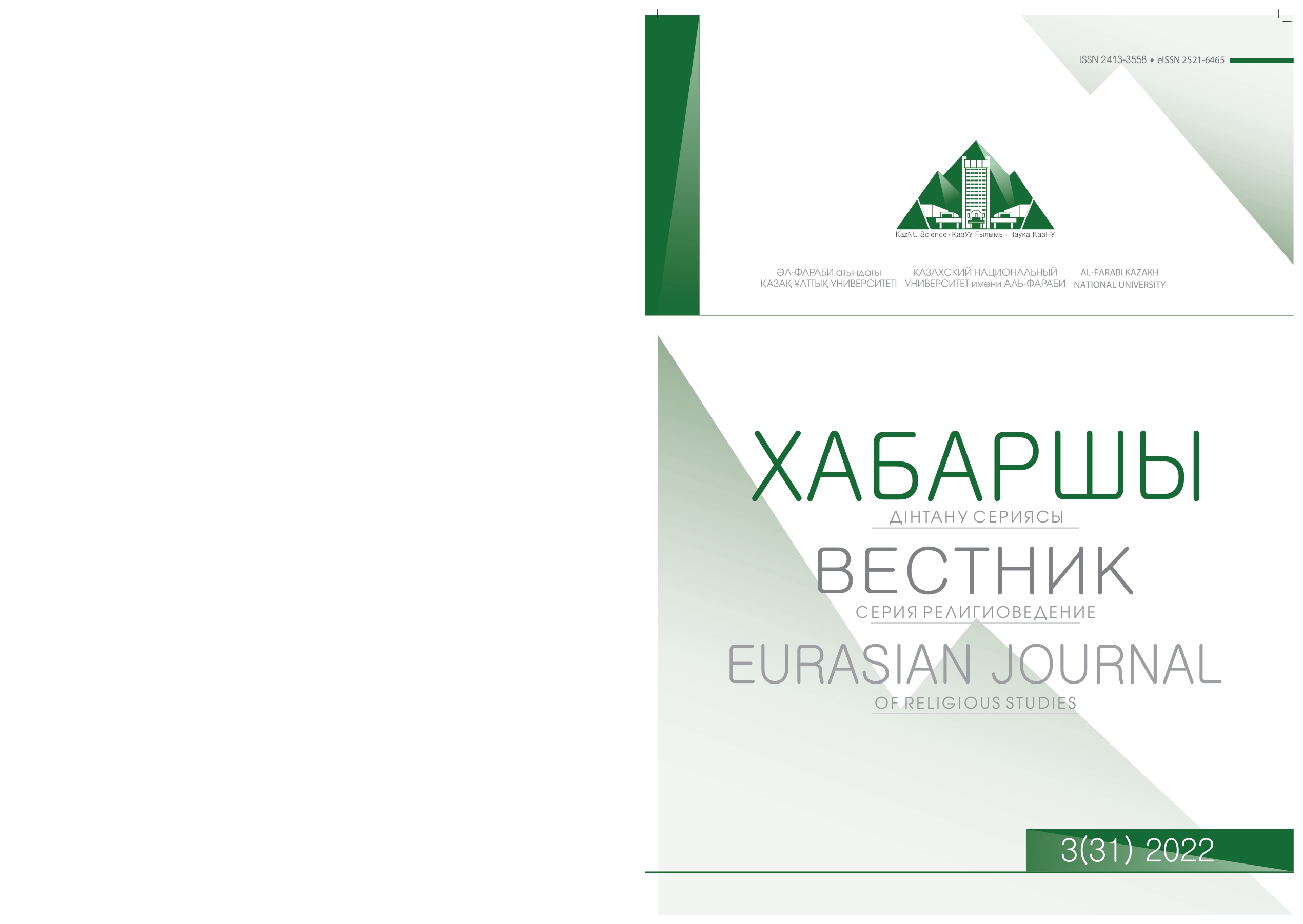God as the Highest Perfection in al-Farabi’s Theology
DOI:
https://doi.org/10.26577//EJRS.2022.v31.i3.r2Keywords:
The First Being, metaphysics, theology, the idea of God, perfectionAbstract
This article discusses the idea of God as the highest perfection and the most perfect knowledge in the theological doctrine of al-Farabi. Al-Farabi considers his doctrine of the perfection of God in the famous work “On the Perfect state”. Most of this treatise is about proof of the existence and perfection of God. Al-Farabi describes the qualities of God not only directly, but also through the attributes of life, knowledge, wisdom, reality, and truth. Al-Farabi calls God the First Cause, or simply the First. The idea of perfection, according to al-Farabi, is manifested not only in the laws of the universe, but also in the process of ruling the city and the state. So, if a ruler and inhabitants are guided by faith and the idea of God, then their life will be reasonable since the reason and perfection of God are identical in the theology of al-Farabi. Thus, the metaphysics of al-Farabi is closely connected with the idea of perfection of Reason, which manifests itself in a detailed theologo-philosophical doctrine.
Keywords: The First Being, metaphysics, theology, the idea of God, perfection
References
Al-Farabi, Abu Nasr (2007) On the Intellect / Classical Arabic philosophy: an anthology of sources / translated with introduction, notes, and glossary by Jon McGinnis and David C. Reisman. – Indianapolis, Hackett Publishing Company, Inc. – 416.
Aristotle (1984) Metaphysics / The Complete Works of Aristotle. The Revised Oxford Translation. Edited by Jonathan Barnes. Vol. II. Princeton University Press. – 1889.
Audi, Robert (2004) Perception and Consciousness / Handbook of Epistemology. Edited by Ilkka Niiniluoto, Matti Sintonen, Jan Wolenski. By Springer Science+Business Media Dordrecht. DOI 10.1007/978-1-4020-1986-9
Druart, Tereze-Anne (1987) AI-Farabi and Emanationism. Studies in Medieval Philosophy. – The Catholic University of America Press. – 302.
Ezzaher, Lahcen E. (2008) An Arabic-English Translation of Alfarabi’s Commentary on Aristotle’s Rhetoric / A Journal of the History of Rhetoric, Vol. 26, No. 4 (Autumn 2008). – pp. 347-391.
Fakhry, Majid (2002) Al-Farabi, Founder of Islamic Neoplatonism. His Life, Works and Influence / One World, Oxford – 168.
Hegel, Georg Wilhelm Friedrich (1991) The Encyclopaedia Logic, with the Zusätze: Part I of the Encyclopaedia of Philosophical Sciences with the Zusätze. A new translation with Introduction and notes by T.F.Geraets, W.A.Suchting, and H.S.Harris. Hackett Publishing, Indianapolis/Cambridge. – 381.
Heidegger, Martin. Being and Time / Translated by John Macquarrie & Edward Robinson. Blackwell Publishers Ltd, 1962. – 480.
Janos, Damien (2012) Method, Structure, and Development in al-Farabi’s Cosmology. Leiden-Boston: Brill. – 433.
Jackson, Roy (2014) What is Islamic Philosophy? / Routledge Taylor and Francis Group. London and New York. – 190 p.
López-Farjeat, Luis Xavier (2016) Al-Farabi’s Psychology and Epistemology / Stanford Encyclopedia of Philosophy.
Polansky, R. (2007) Aristotle’s De Anima: A Critical Commentary. Cambridge: Cambridge University Press. doi:10.1017/CBO9780511551017
Turker, Habip (2011) Beauty and Its Projection in Christian and Islamic Tradition. Sharing Poetic Expressions: Beauty, Sublime, Mysticism in Islamic and Occidential Culture. Edited by Anna-Teresa Tymieniecka. Springer Science & Business Media. – New Hampshire: Springer. – 260.
Wallis, Richard T.; Bregman, Jay (1992) Neoplatonism and Gnosticism. SUNY Press. – 531.













